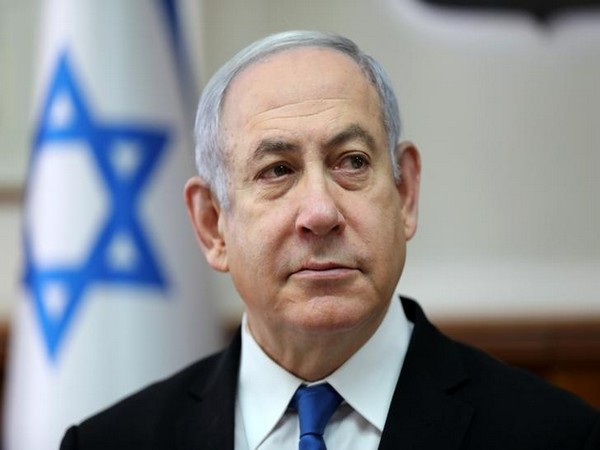

It was Israeli Prime Minister Benjamin Netanyahu’s first official visit abroad in more than five months. The red carpet was rolled out at the presidential palace in Nicosia, the anthems of Israel and Cyprus were played and Netanyahu met with Cypriot President Nikos Christodoulides.
Some would say that Israel and Cyprus have had good, even great relations over the past few years. But one issue always prompts debate and sometimes crisis between the two countries: natural gas.
“We discussed several options for cooperation in the field of natural gas. Our two countries were lucky and we discovered gas reserves,” Netanyahu said after his meeting with Christodoulides.
“We agree that natural gas and renewable energy is a prime pillar of cooperation in the region, especially in light of recent geopolitical developments,” Christodoulides said.
However, while the leaders were holding talks in Nicosia, another meeting was taking place. Israel’s Energy Minister Israel Katz spoke with his Turkish counterpart Alparslan Bayraktar about cooperation in the field of natural gas.
“We had a productive talk and discussed possibilities of renewing our energy collaboration,” Katz tweeted. Bayraktar tweeted, “I will visit Israel at the earliest time to discuss opportunities.”
Due to the rivalry between Cyprus and Turkey, Israel might have to choose with whom it will work, and soon.
“Since the Russian invasion of Ukraine last February, the search for alternative gas sources instead of Russia have become a huge focus of Europe,” Matthew Bryza of the Atlantic Council, who is an expert on global energy and a former deputy assistant secretary of state for European and Eurasian affairs, told the Tazpit Press Service. “Russia has cut the gas flow to Europe and Europe has pledged to ‘get rid’ of any Russian oil or gas imports by 2027.”
At that point, Israel enters the game. After several natural gas discoveries during the 2000s, Israel began producing gas at its offshore gas fields in 2004. Today, around 21 billion cubic meters (BCM) of gas are produced annually, with over nine BCM exported to Egypt and Jordan.
In June 2022, a deal was signed between Israel, Egypt and the European Union, according to which Israel will export natural gas to Egypt, where it will be liquified, and then exported to Europe. The agreement paves the way for the first Israeli gas exports to the E.U.
In recent weeks, Israel’s Energy Ministry has been discussing the option of increasing the amount of gas Israel will export.
“We have already approved one company to increase the amount of gas it exports, which increases the amount by about 30%,” Chen Bar-Yoseph, head of fuel administration at the Energy Ministry, told TPS.
“Currently, additional requests to increase exports from other companies are being examined. The condition, of course, is that they increase the amount of gas they release and thus more gas should also reach the Israeli market,” Bar-Yoseph said.
Cypriot and Turkish Options
Israel does not have the infrastructure to liquify natural gas. One options being discussed these days in Israel is a liquified natural gas (LNG) port in Cyprus that will be connected by pipeline to gas fields along the Israeli coast. Over the past year, European countries have begun to talk about building LNG facilities that receive gas exports.
“But this will take time,” Bryza told TPS. “Floating LNG is still expensive. The prices are coming down, but it’s still expensive.”
Israel and Cyprus have another gas issue that has yet to be resolved: The Aphrodite natural gas field, which is located mostly in Cypriot waters but partially in Israeli waters. Cypriot officials have complained to their Israeli counterpart in recent months that Israel reached a gas deal with Lebanon, an enemy state, but not with Cyprus, a friendly state.
The field cannot be developed until Jerusalem and Nicosia work out an agreement.
Turkey, Cyprus’s rival wants two things. Improving relations with Israel and becoming a transit hub for natural gas from multiple sources. This is why, for years, Turkey has been interested in building an Israel-Turkey gas pipeline.
Although everyone agrees this is the cheapest option, some in Israel fear dependence on Turkey in regard to gas exports to Europe because of the instability of Israel-Turkey relations in recent years. Former Israeli Prime Ministers Naftali Bennett and Yair Lapid declined to even discuss the Turkish option so as not to harm relations with Cyprus and Greece.
But ahead of a planned meeting between Netanyahu and Turkish President Recep Tayyip Erdogan, Netanyahu’s government has put the option back on the table.
In recent years, Israel has been working with Cyprus, Greece and Italy to build a gas pipeline to Europe called EastMed, but the U.S. does not consider it commercially viable and the idea was put on hold for some time. Now, it may be back in the game.
“At the moment the discussions are very preliminary,” Bar-Yoseph told TPS. “The Europeans are considering whether to invest in EastMed. There are quite a few logistical problems, but it is not an impossible event. If the Europeans come in and finance it, then the issue can certainly be promoted.”
Netanyahu said this week that the decision on which route to choose will be decided in the next three to six months. It will be an economic decision for Israel, but will also have serious political implications. (ANI/TPS)